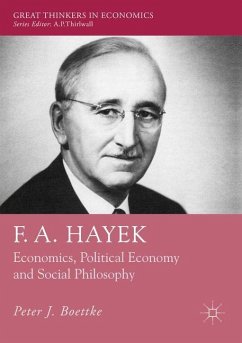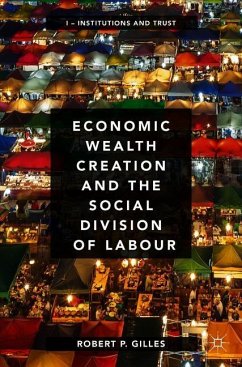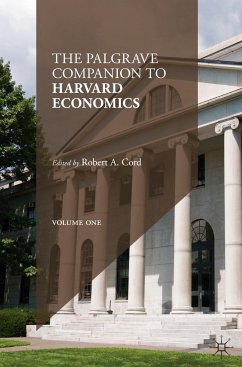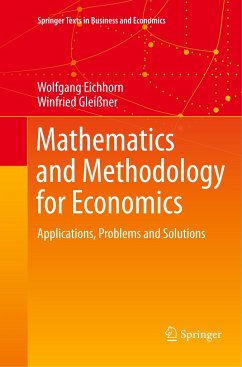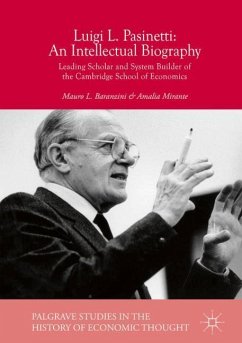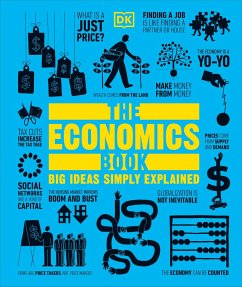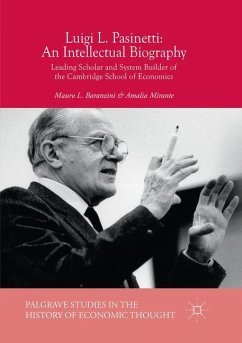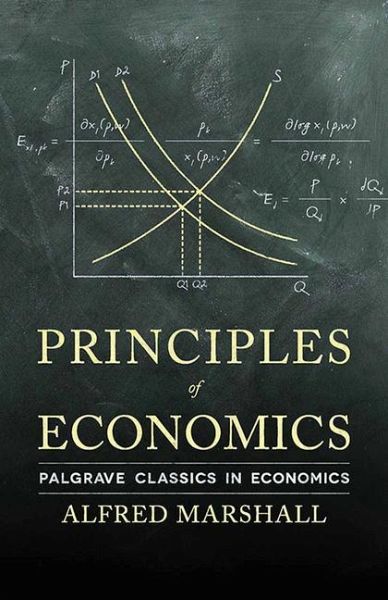
A. Marshall
Broschiertes Buch
Principles of Economics
Versandkostenfrei!
Versandfertig in 6-10 Tagen
Weitere Ausgaben:

PAYBACK Punkte
20 °P sammeln!





Alfred Marshall, Principles of Economics (1890) - Founder of Modern (Neo-classical) Economics. His book Principles of Economics was the dominant textbook in economics for a long time and it is considered to be his seminal work.
Alfred Marshall (1842-1924) is widely regarded as the doyen of modern economics and the founder of the Neoclassical School of Economics; he is best known for revolutionising the teaching of economics. In 1865 Alfred Marshall was elected to a fellowship at St John's College, Cambridge, UK, he became a lecturer in moral sciences in 1868 and in 1885 he was awarded Professorship in Political Economy at Cambridge where he remained until his retirement in 1908. Marshall's magnus opus Principles of Economics was first published in 1890 to worldwide acclaim and it cemented his reputation as one of the leading economists of his time.
Produktdetails
- Palgrave Classics in Economics
- Verlag: Palgrave Macmillan / Palgrave Macmillan UK / Springer Palgrave Macmillan
- Artikelnr. des Verlages: 978-0-230-24929-5
- 2013
- Seitenzahl: 760
- Erscheinungstermin: 5. Dezember 2013
- Englisch
- Abmessung: 216mm x 140mm x 41mm
- Gewicht: 936g
- ISBN-13: 9780230249295
- ISBN-10: 0230249299
- Artikelnr.: 39356153
Herstellerkennzeichnung
Springer-Verlag GmbH
Tiergartenstr. 17
69121 Heidelberg
ProductSafety@springernature.com
"It is impossible to understand economics in the twentieth century without knowing about Marshall's Principles. The simplicity of his presentation conceals complexities that were not apparent to later generations who picked up on the mathematics whilst ignoring many of the evolutionary ideas that fascinate modern scholars."
Roger E. Backhouse, Professor of the History and Philosophy of Economics, University of Birmingham, UK
"Alfred Marshall's Principles of Economics is an outstanding contribution, one of the foundations of neoclassical economics, and shaped the thought of economists from John Maynard Keynes to Milton Friedman. Every modern economist should make its acquaintaince and should look in admiration at that seminal diagram in which Marshall drew a supply curve intersecting a demand curve. Peter Groenewegen, Marshall's biographer and the greatest living Marshall scholar, has written a new introduction for this edition, drawing on a lifetime of insightful scholarship."
Robert W. Dimand, Professor of Economics, Brock University, Canada
Roger E. Backhouse, Professor of the History and Philosophy of Economics, University of Birmingham, UK
"Alfred Marshall's Principles of Economics is an outstanding contribution, one of the foundations of neoclassical economics, and shaped the thought of economists from John Maynard Keynes to Milton Friedman. Every modern economist should make its acquaintaince and should look in admiration at that seminal diagram in which Marshall drew a supply curve intersecting a demand curve. Peter Groenewegen, Marshall's biographer and the greatest living Marshall scholar, has written a new introduction for this edition, drawing on a lifetime of insightful scholarship."
Robert W. Dimand, Professor of Economics, Brock University, Canada
Für dieses Produkt wurde noch keine Bewertung abgegeben. Wir würden uns sehr freuen, wenn du die erste Bewertung schreibst!
Eine Bewertung schreiben
Eine Bewertung schreiben
Andere Kunden interessierten sich für




